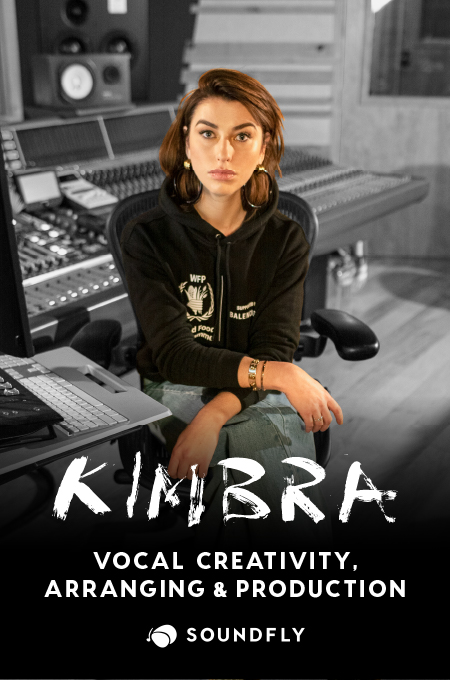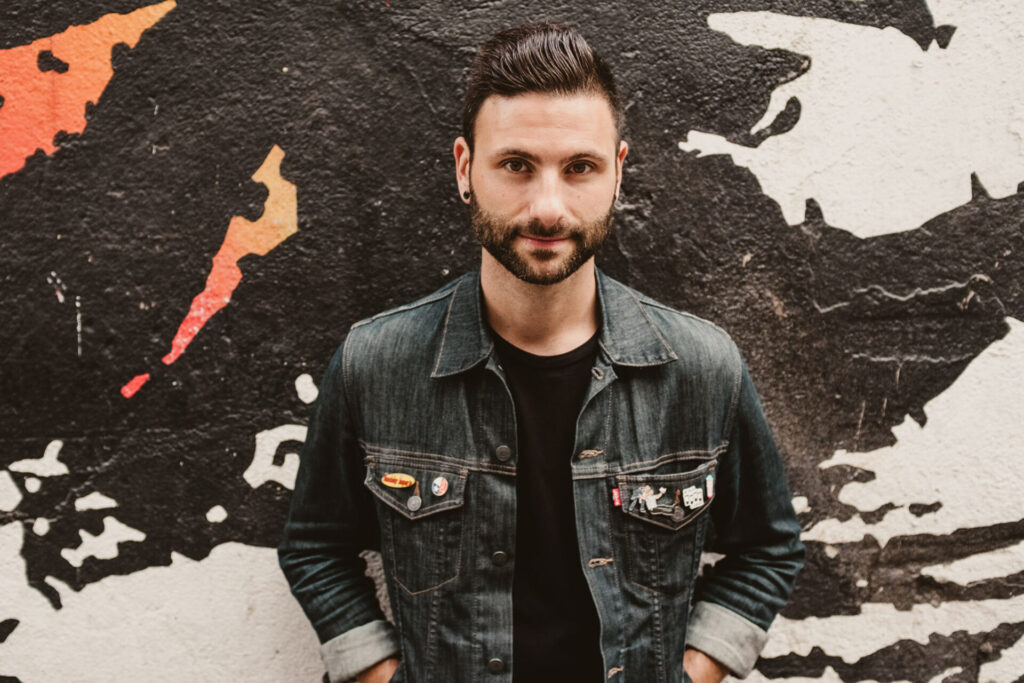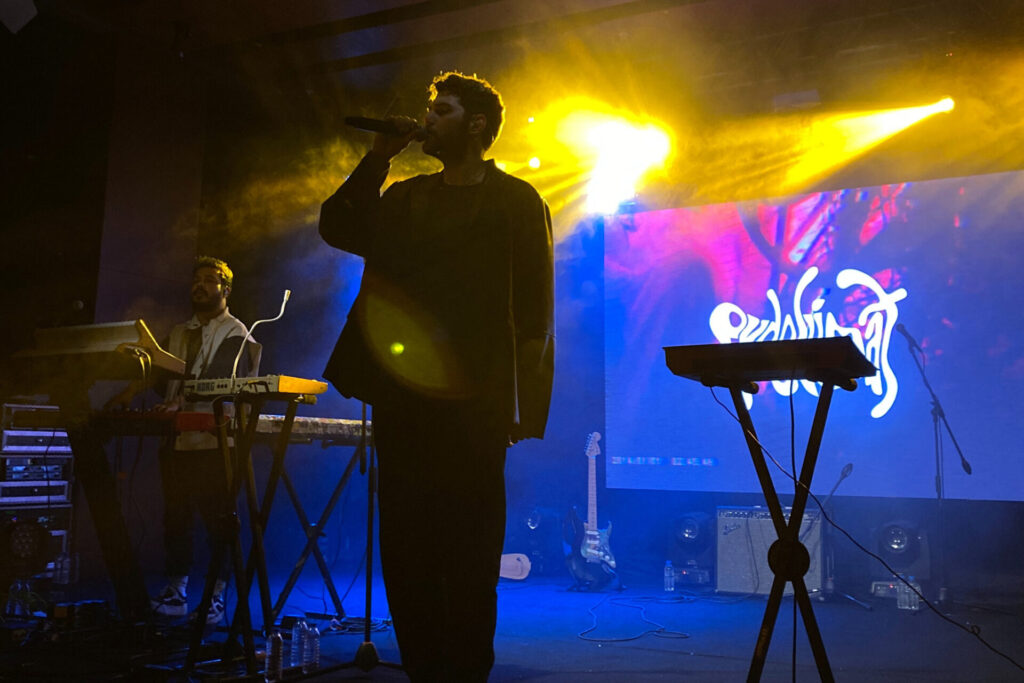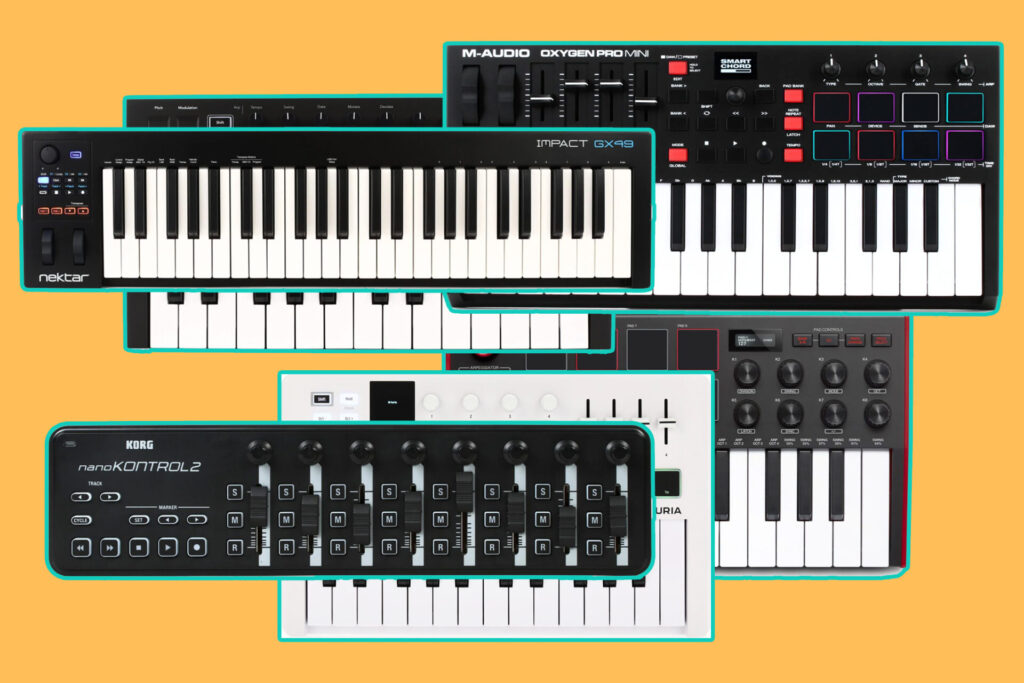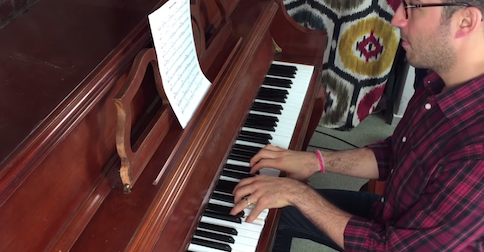
+ Bridge the worlds of theory, improvisation, and jazzy hip-hop, and improve your piano chops with Grammy-winner Kiefer in his course, Kiefer: Keys, Chords, & Beats.
Singers need to learn piano — it’s a fact.
I’ve played many instruments over the years — trumpet, clarinet, and sax to name a few — but first and foremost, I am a singer. And, in my experience, no instrument I’ve ever played has been as versatile and useful to my sound as the piano. Those 88 keys combined with ten fingers make for the most incredible of possibilities. If you aren’t already convinced that the piano is a great instrument worth hours of practice and occasional frustration around said practice, I’m here to bring you down the path.
Woodwinds taught me to sing.
It sounds crazy, but there’s a greater correlation than you’d think. Wind instruments build stamina and breath support, both essential to singers.
Although woodwinds were the first vessel for my love of music, I soon became aware that I could carry a tune with my voice, and I needed an instrument to underpin it. Much of my time was spent relying on a piano accompanist to support me as I coughed out my tune to audiences large and small. To me, singing without piano is like playing pingpong without a paddle — it’s just not done.
As I began singing the Italian arts songs and progressed to musical theater, it became evident that I was missing an essential tool. I couldn’t accompany myself — of course, if I’d figured out how to sing and play the sax at the same time I’d be laughing all the way to the bank.
Even worse, I couldn’t easily plunk out the vocal line in order to learn new songs. When I was a beginner it wasn’t vital. My voice teacher recorded my songs. I practiced them and returned the following week. Wash, rinse, repeat. As I progressed towards a professional career, though, this was not economical or timely. Some auditions require you to learn a new song overnight and come back and sing it the next day. What’s a dude to do?
Enter, piano skills.
I started to teach myself piano. I could already read music, giving me a leg up, but piano was still a challenge. My greatest obstacles were encountering more than one note at a time, using my left hand as a rhythm section, and reading bass clef (on top of reading treble clef).
It was very frustrating and slow going at first to translate my musical skills to such a foreign instrument. I played everyday, getting the melody in my right hand first, and then learning to add chords in my left hand. I bought books, I worked with music I already had, I listened to songs on the radio and tried to figure them out. I wish I could say that one day it just clicked, but the truth is that anything worth doing generally takes a great deal of work and commitment. If it didn’t, there would be no sense of accomplishment, which I now feel each time I accompany myself or a student.
My piano pursuit began before there were any online courses or tutorials to assist me along my journey. Nowadays there’s a huge library of options vying for your attention, each eagerly poised to “teach you piano.” We all learn in different ways. Some people are highly visual, while others heavily rely on theories they find in books. If you ask me, which I’ll infer by your reading this long diatribe, I recommend that you find a method that feels good and stick with it. Get creative! Combine online learning with in-person classes. Check out meetups in your area. Start trying to figure out how to play your favorite songs just by ear. There are so many resources available, you just have to find what clicks for you!
In the end, piano has become my favorite instrument — one I can really rely on as a singer, but also a great stress reliever. It’s a welcome release to sit down and play some old Beatles’ songs, or try to sight read through a challenging piece. I’m able to learn new vocal lines in no time and concentrate on owning the song vocally, rather than stressing over plunking out the correct notes. If there were a PSA for piano, this would be it!
By the way, if you’re interested to learn more about how to harness the intersections between jazz, improvisation, and modern music like hip-hop in your own music, you’re going to love Soundfly’s newest course with jazz pianist and beat producer, Kiefer: Keys, Chords, & Beats.
Don’t stop here!
Keep learning about theory and harmony, composing and arranging, songwriting, and more, with Soundfly’s in-depth online courses. Subscribe for access to all, including The Creative Power of Advanced Harmony, Orchestration for Strings, and our exciting new course with Grammy-winning pianist and producer, Kiefer: Keys, Chords, & Beats.
